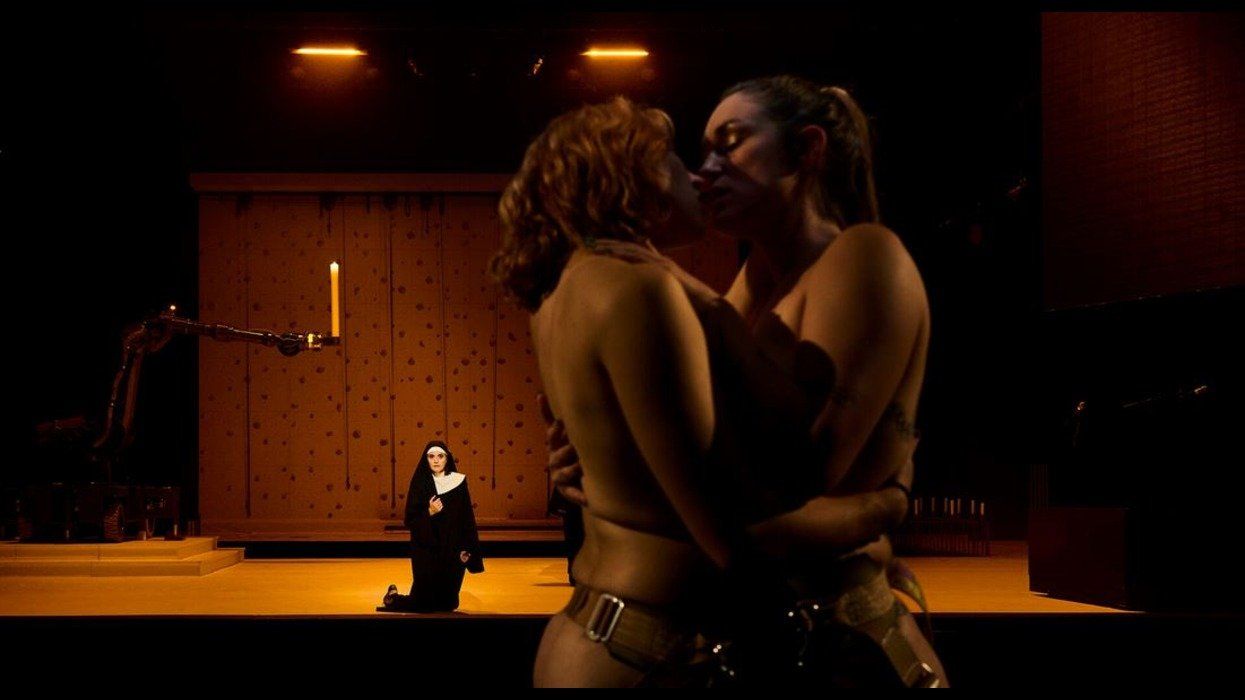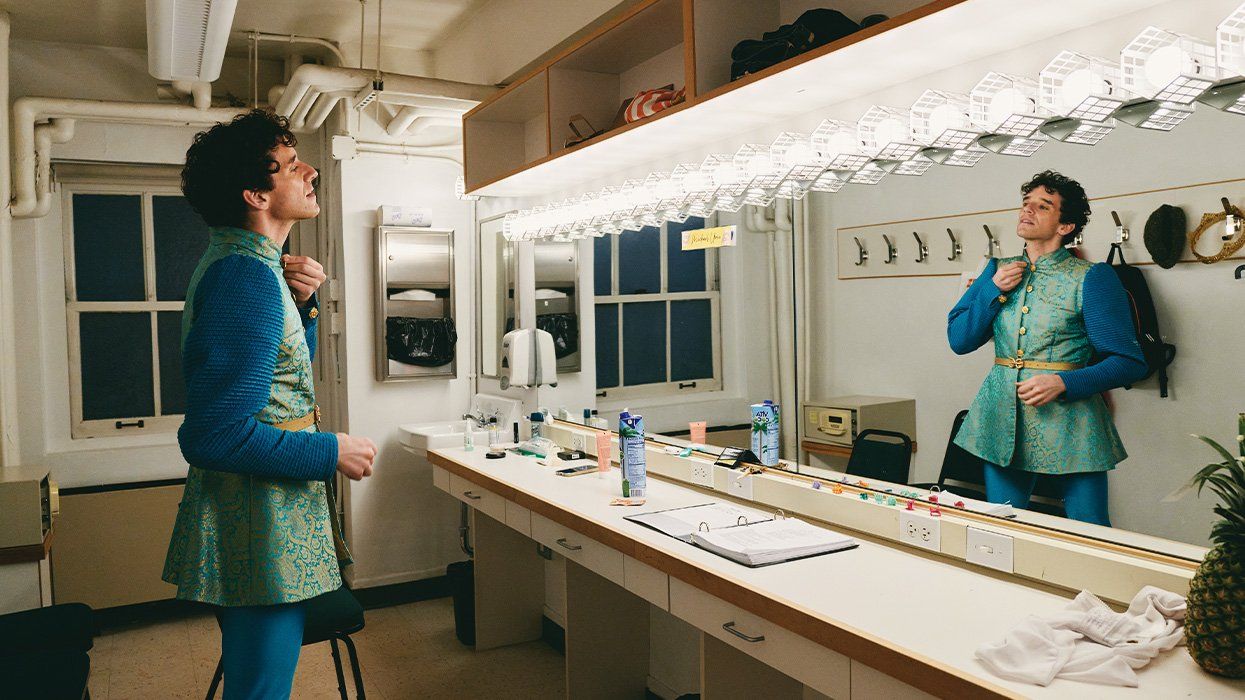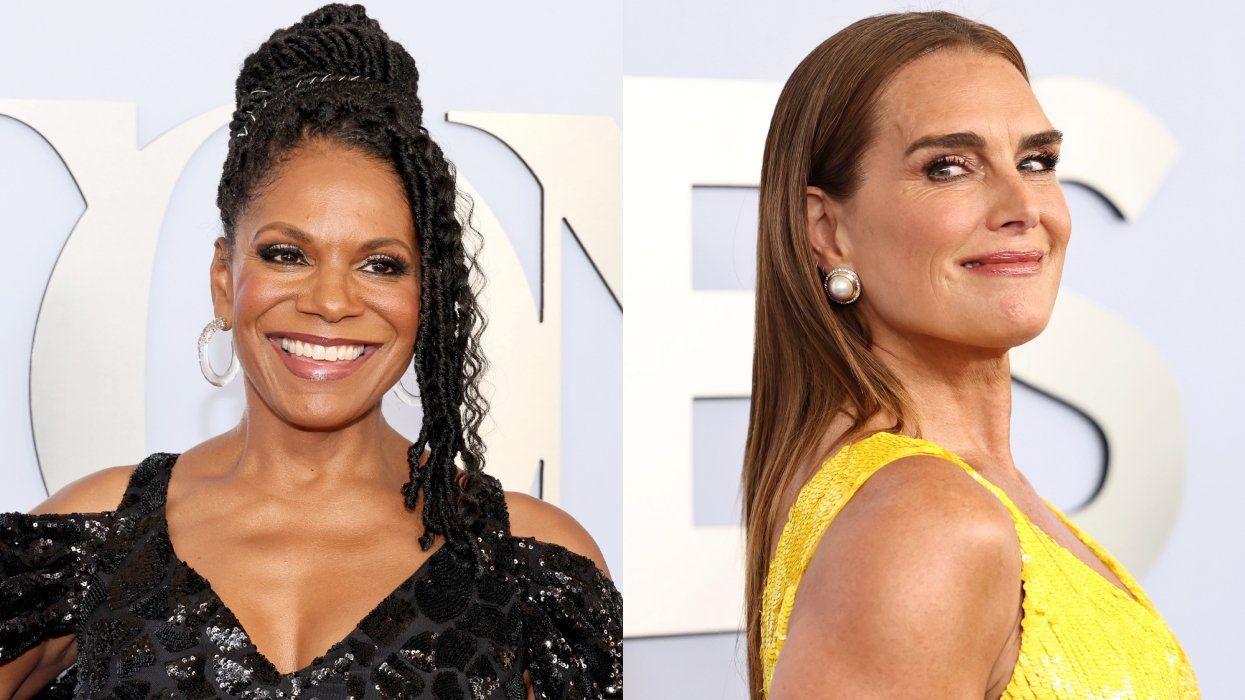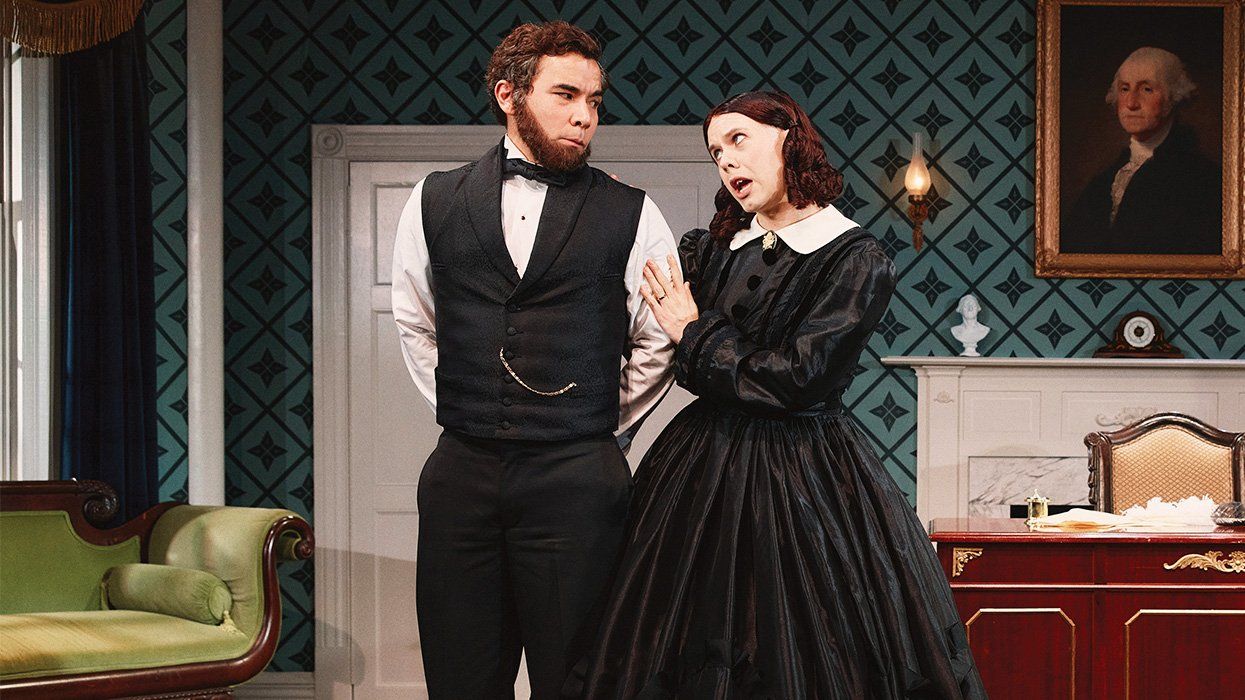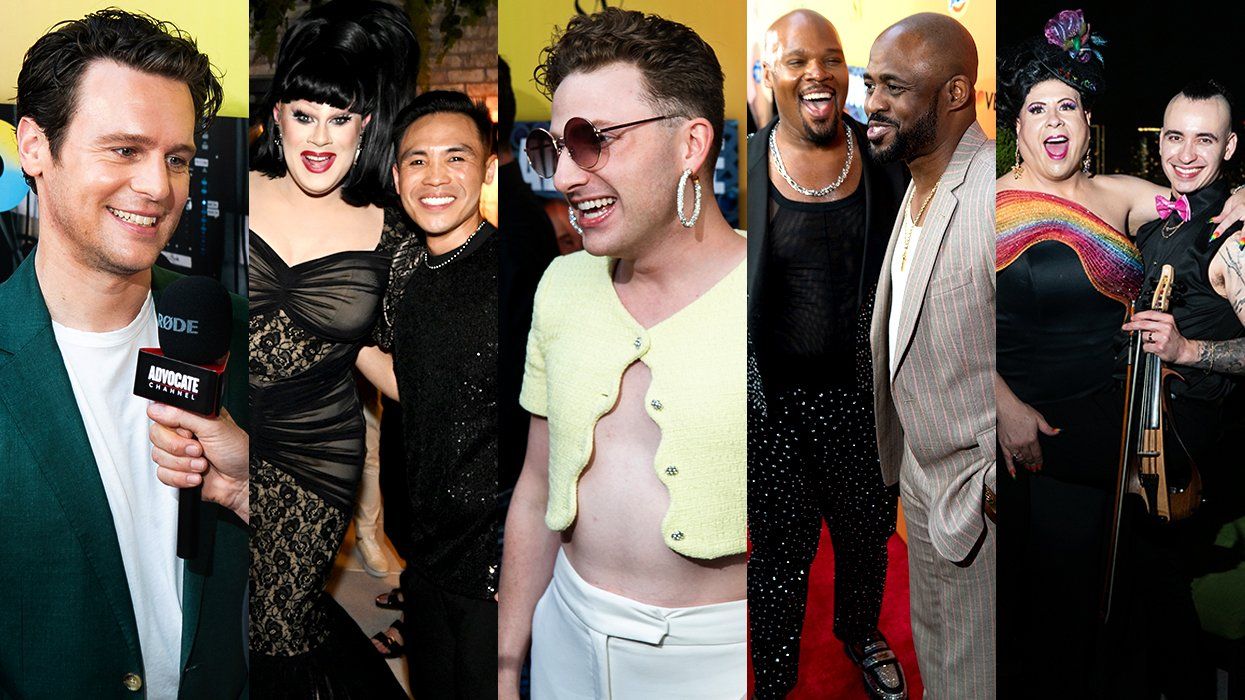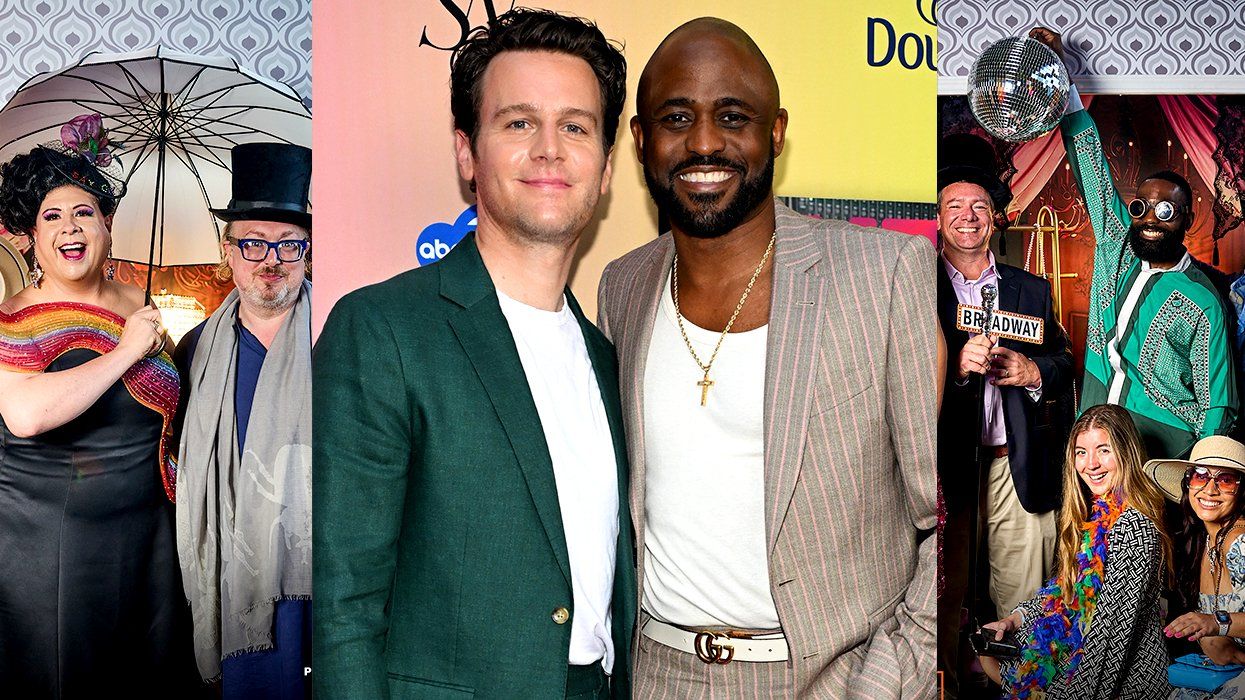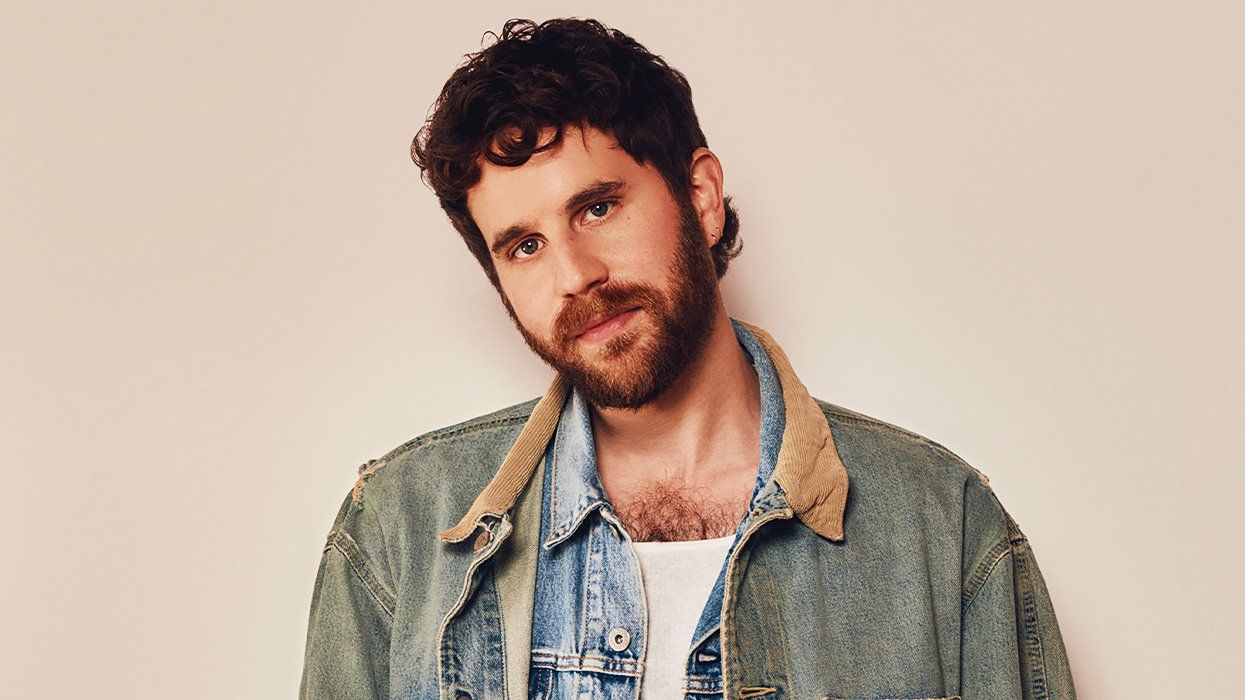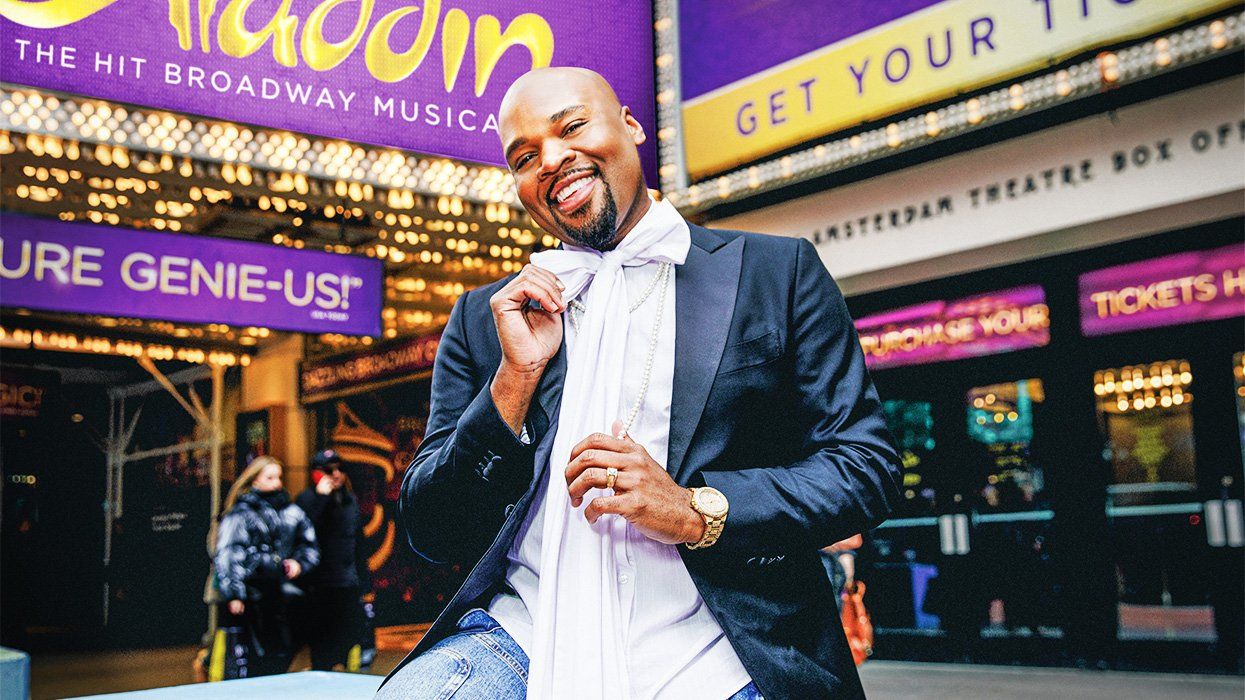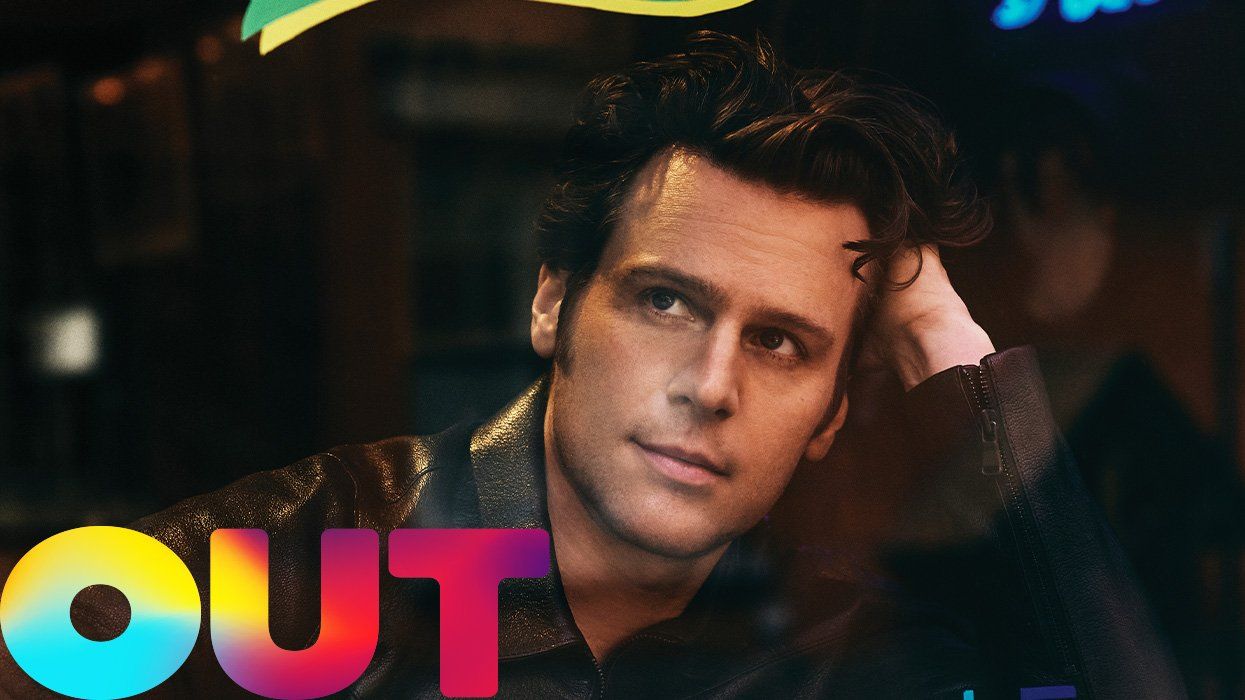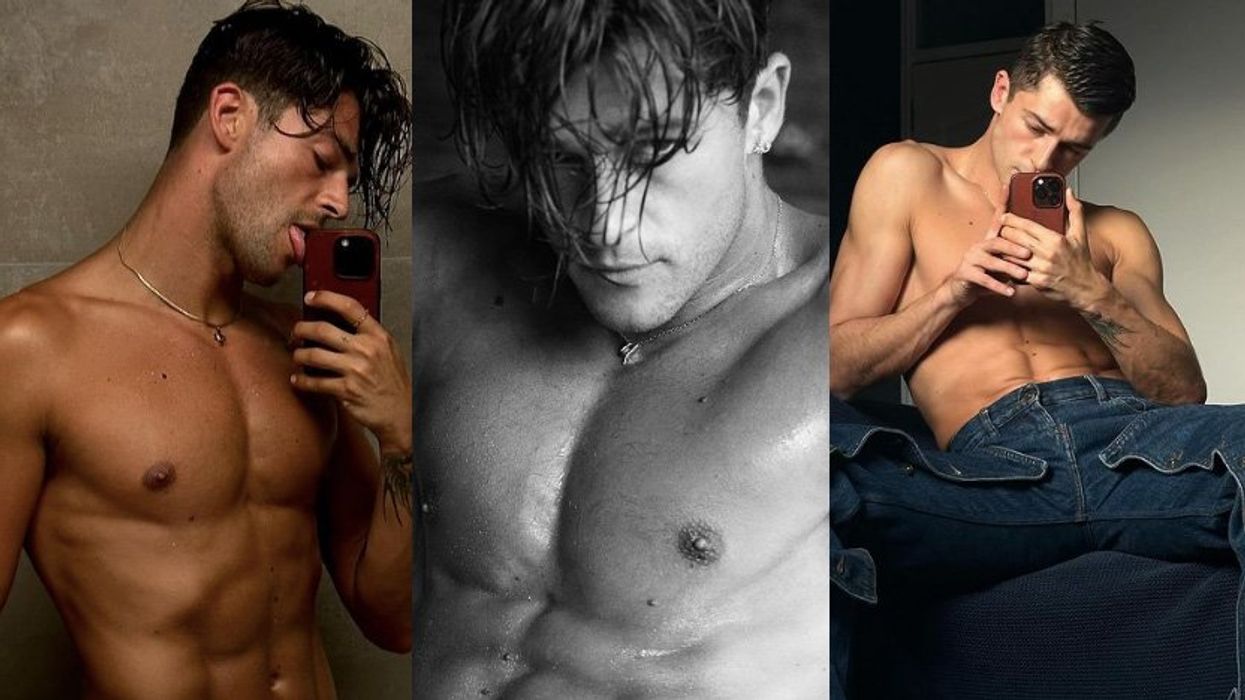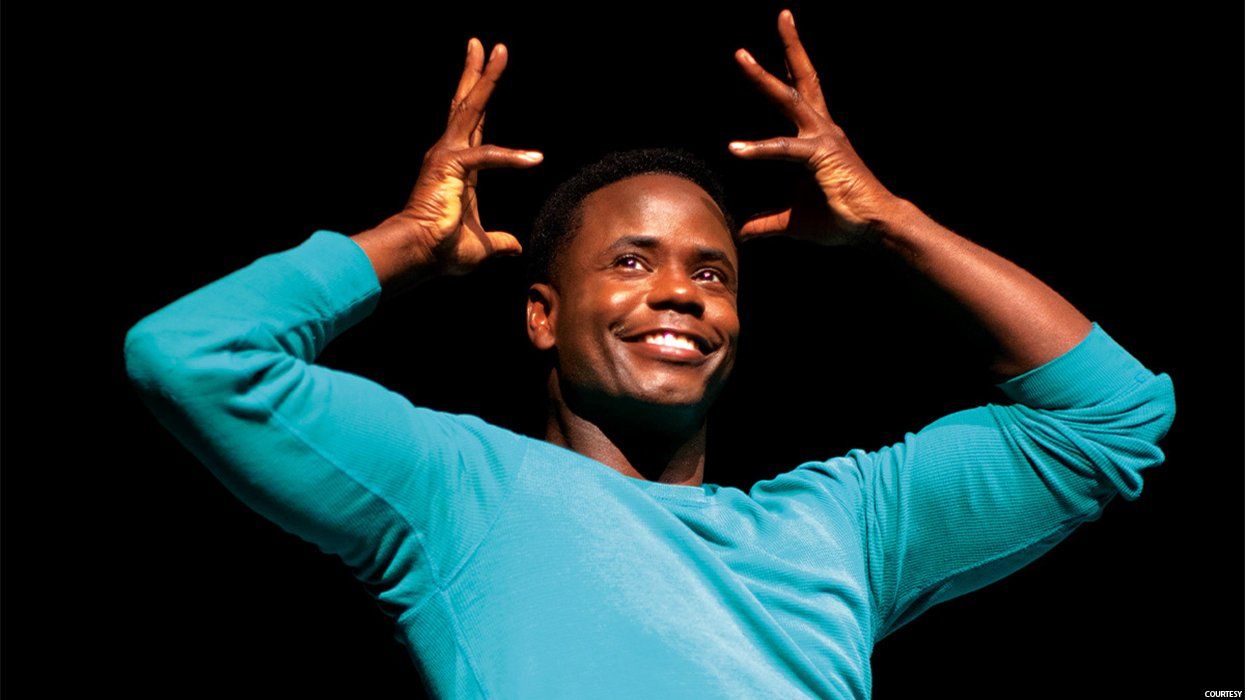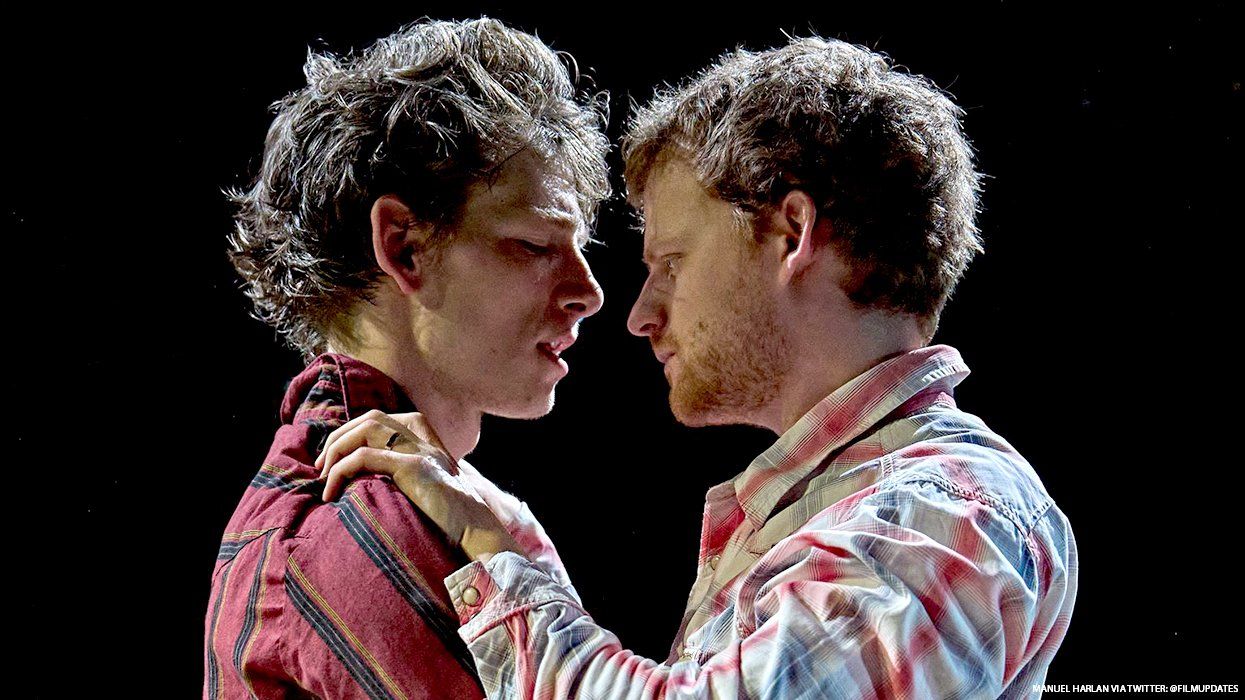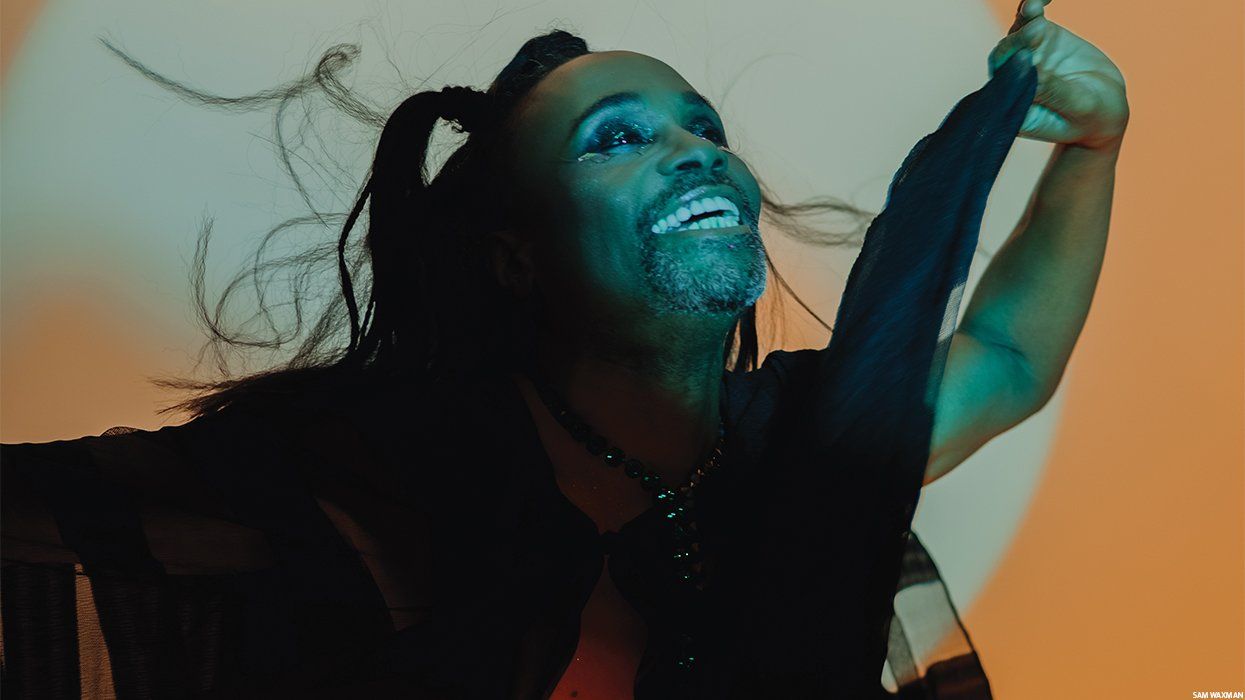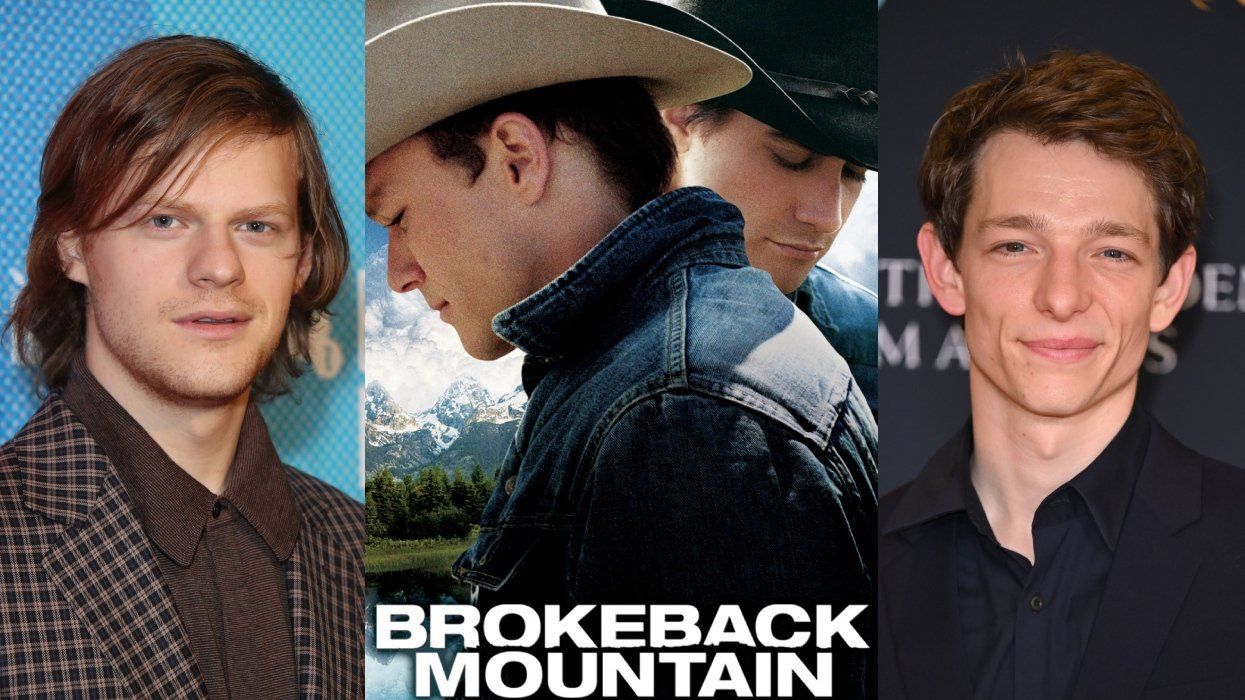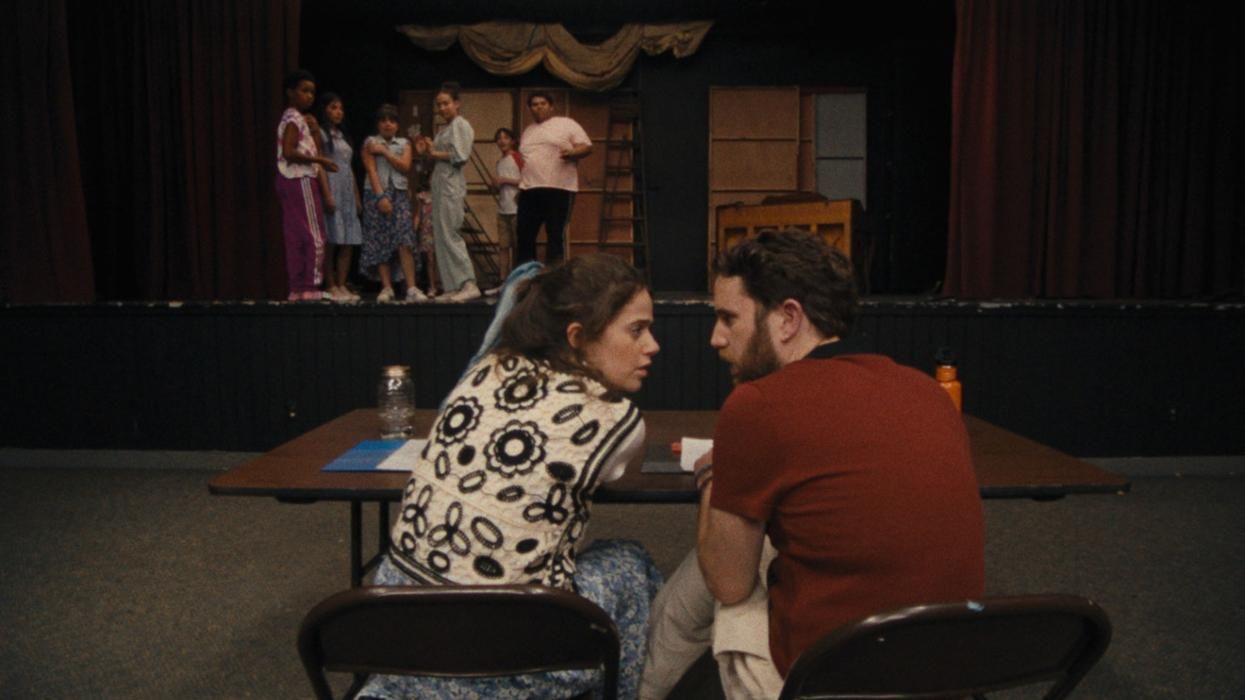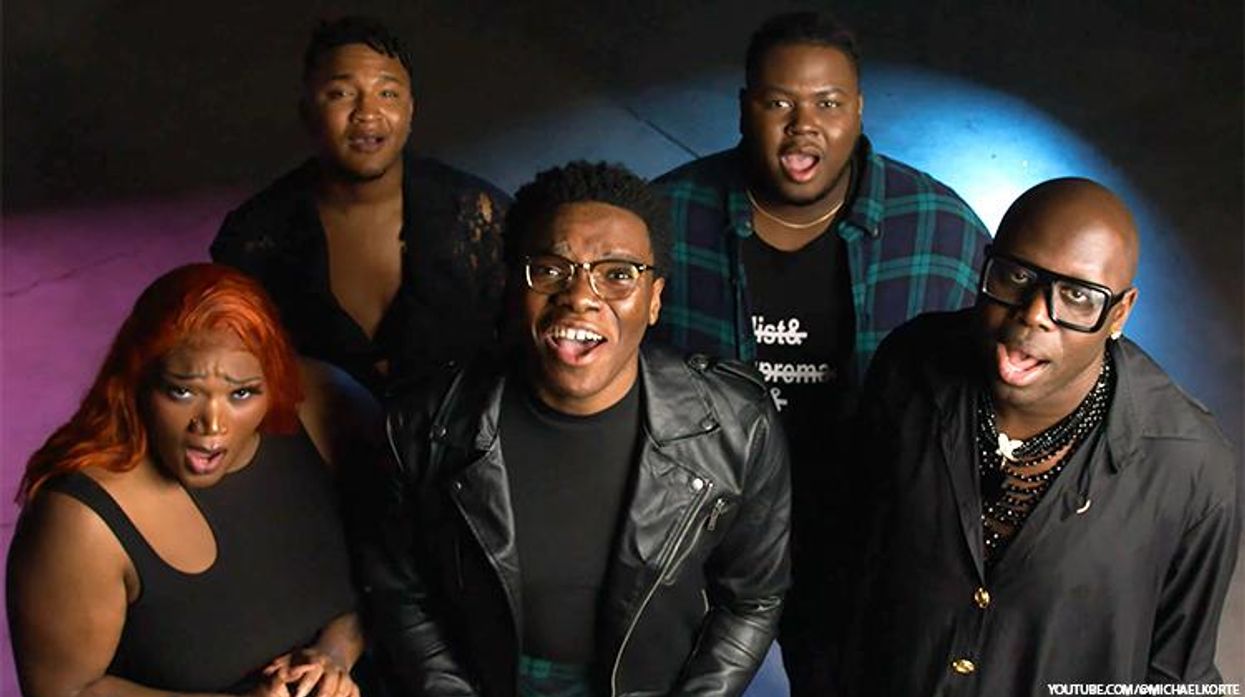Hunched over a table in the bar of London's Royal Court Theatre, Ben Whishaw looks like a small woodland animal. As if scanning for predators, his eager eyes dart around the room surveying the crowd as he breaks a banana into pieces and pops it into his mouth. He fidgets and squirms in his seat as if flea-infested, his oversize sweater almost drowning his wiry frame in wool. He is not typical leading-man material.
Yet, however improbable, that is exactly what Whishaw has become, thanks to a series of finely wrought performances that began at the youthful age of 23 when he played theater's ultimate prize, Hamlet, in a production by the legendary theater director Trevor Nunn. He confirmed his promise in a run of movie roles, including the scent-obsessed serial killer Grenouille in Tom Tykwer's adaptation of the cult novel Perfume, grizzly rocker Keith Richards in Stoned, and Bob Dylan (along with Cate Blanchett and Heath Ledger) in Todd Haynes's I'm Not There. After seeing his performance in the 2008 remake of Brideshead Revisited, British critic David Thomson hailed him as 'one of Britain's great actors,' and his recent turn as the poet John Keats, in Jane Campion's much-praised Bright Star, put critics in a swoon on both sides of the Atlantic.
No one, it seems, is more surprised by this astonishing ascent than Whishaw himself. 'When I was at college, I never thought I'd play the roles I've played. I always got the skinny geeky roles. Maybe it's just that those kinds of roles are now leading men. If I thought a role demanded it and I wanted it, I would bulk up. People have asked me to do that in the past, and I've tried. But it's very hard -- I've managed to get bigger arms, but the minute I stop going to the gym they just fall away.'
It's odd thinking of Whishaw bulking up because his feral fragility -- along with his amazing eyes -- are partly what make him such a joy to watch. Although he can't sit still in his seat and pauses and prevaricates his way through our conversation, apologizing along the way ('Sorry I'm being really incoherent') there's also an intense stillness to Whishaw. This may in some way explain his excellence as a stage actor. His choice of roles is ambitious too. As well as playing Hamlet and other classical parts like Konstantin in Chekhov's The Seagull, he excels in contemporary theater. Much of his stage work consists of difficult, occasionally grueling, plays such as Philip Ridley's postapocalyptic Mercury Fur -- castigated as 'poisonous' and 'a vicious kick in the guts' by London's The Daily Telegraph. There have been similar roles in film: In My Brother Tom, for which he won a British Independent Film Award for most promising newcomer, he played a troubled teenager sexually abused by his father who embarks on a twisted relationship with an abused young girl.
But it's Whishaw's most recent choice of theater roles that has been his most intriguing. Ahead of appearing off-Broadway in Alexi Kaye Campbell's The Pride, a show directed by Joe Mantello about the contrasting experiences of gay men in 1958 and 2008, Whishaw is at the end of a run in Cock, at London's Royal Court Theater, in which he plays a man who takes a break from his boyfriend only to fall in love with a woman. By any standard, these are not the typical career moves for an actor on the cusp of greatness. Though playing gay guarantees plaudits for well-established (straight) actors -- witness Sean Penn's Oscar-winning turn as Harvey Milk'it can create all sorts of problems for a young actor whose sexuality is the source of Internet chatter. Rupert Everett, for one, has linked his decision to come out to his dwindling career -- a dwindle, it must be said, that his own personality might have compounded. So is Whishaw trying to tell us something? And if so, is he wise to do it?
The answer, apparently, lies in Cock. Or as Shakespeare would put it, the play's the thing. Cock is all about the futility of labels and so -- it seems -- is Whishaw. 'I was really drawn to Cock because for me, it's about how chaotic and messy we all are, how it's a futile endeavor to constrict people with labels and how frustrating that can be when the labeling starts to impinge on you, your life, and how you interact with people. Of course, Cock is about sexuality and sexual labels, but I think it's about more than that -- it's about labeling in general and conformity and nonconformity.'
While he might reject labels -- his character in Cock declares that the labels gay and straight are 'words from the '60s made by our parents'only invented to get rights' -- the coincidence of appearing in consecutive plays (Cock and The Pride) that explore sexuality might suggest a subconscious desire to discuss his own identity. Are the plays a way to make a statement without making a statement?
'Maybe it's subconscious, I don't know,' he says. 'It's intriguing to me that these parts come along. Of course the choices you make express something about you to the world, and of course the work I do is all about me, but rather than me standing up and making statements about myself and things, I'd prefer to let the work do the speaking.'
Whether this is a disingenuous fudge or a heartfelt response from a man who, at 29, still seems something of a boy, Whishaw is not oblivious to the complex and painful issues that the question raises. Asked if he thinks it's important for young gay people to have positive role models, his ambivalence vanishes. 'I really agree with that, and I feel in my heart that it's important, but I don't quite know yet the way to go about that. Maybe that's the transitional thing I feel I'm in the middle of at the moment. It's something I think about, but it's important for me to do it at the time that's right for me. And I'm not there yet.'
But you sense that Whishaw is on his way. He talks of being at a stage in his life when he's shedding a skin and 'sinking into' himself more. 'I've got more of a certainty of what I am, and I've found a strength in that -- a groundedness.'
That said, he also feels, not unreasonably perhaps, that 'as an actor you have total rights to privacy and mystery, whatever your sexuality, whatever you do. I don't see why that has to be something you discuss openly because you do something in the public eye. I have no understanding of why we turn actors into celebrities. It's difficult talking about it. That's why I didn't want to go there, but at the same time I know this is a gay magazine and that means there's a conflict there.'
As the evening performance creeps closer and Whishaw must start his warm-up for Cock -- which involves dancing around backstage to Bucks Fizz's 'Making Your Mind Up,' Britain's peppy winning number of the 1981 Eurovision Song Contest -- he recalls how he first got into acting. 'When I was a child, I dressed up and put on shows, and what really appealed to me was the disguise element of it, the possibility of transformation.' But he is skeptical of the cheap psychology that would associate his dressing up with any discomfort with his own skin. 'I don't think that actors are necessarily any more uncomfortable in their skin than anyone else. I suppose I feel more comfortable in my skin now, but you're always playing a character, aren't you? You tell different versions of yourself to different people and vice versa. Here, or in the photo shoot or wherever, it's a representation of you. It's not you-you. That's how you get through it.'
And with that, Ben Whishaw walks off through the throng in the bar and is gone. If, that is, he was ever here in the first place.
MCC Theater's The Pride begins previews on January 27 at New York City's Lucille Lortel Theatre.
For an exclusive slide show of images from our Ben Whishaw photo shoot, click here.







